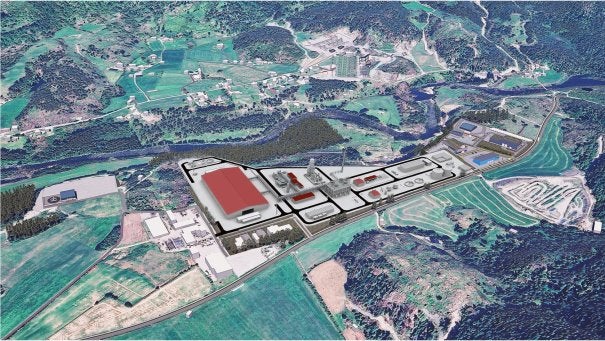Hy2gen Nordic AS, a subsidiary of the global renewable hydrogen producer Hy2gen (Wiesbaden, Germany,Hy2gen) has been granted zoning approval for the Iverson renewable ammonia plant at the Birkeland industrial site by the municipal council of Sauda, Norway. The decision marks a key milestone for establishing a new, pioneering industry that will help cut greenhouse emissions in the maritime sector while creating long-term jobs and local value.

Preliminary illustration from 2024 of renewable ammonia plant Iverson in Sauda, Norway (Source: Hy2gen Nordic)
Hy2gen, as one of the partners behind the Iverson project, welcomes the decision and sees it as an important step toward building large-scale renewable energy solutions in Norway. The company is also actively working on a renewable ammonia project in Canada.
“We are very pleased that a majority supported the approval of our zoning plan. This is a crucial step forward for the project and the beginning of a new industrial chapter in Sauda. We look forward to constructive dialogue and close cooperation with the municipality, local businesses, and the community,” says Hege Økland, CEO of Iverson eFuels and Managing Director of Hy2gen Nordic AS.
The facility will include a 270 MW electrolysis unit powered by renewable hydropower, producing renewable ammonia aimed at reducing nearly 3 million tons of CO₂ emissions in its first decade of operation. In addition to climate benefits, the project will bring major local ripple effects: over 300 people involved during construction, 50–60 permanent jobs once the plant is operational, and hundreds of indirect jobs in the local community.
The project is in line with Rogaland County Council’s regional plan for zero-emission industry and supports Norway’s national climate goals and international green transition strategies. It demonstrates how local renewable energy can help cut greenhouse emissions and generate sustainable growth and new opportunities.
With the zoning plan in place, the Iverson project will move forward with technical development work before making a final investment decision. The plant will be an important driver of green value creation at the local, regional, and national levels, while also contributing to the acceleration of the global transition toward a zero-emission society.